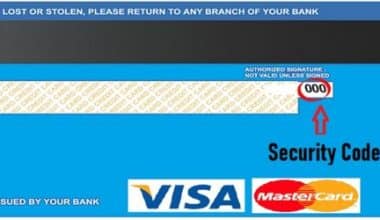Credit card debt consolidation combines various credit card balances into a single monthly payment. If the interest rate on the new debt is lower than the interest rate on your credit cards, consolidating your debt is a good idea. This can lower interest expenses, make payments more reasonable, and decrease the payoff duration. How much debt you have, your credit score and other factors will determine the best approach to consolidating. Now, let’s look at how to consolidate credit card debt with bad credit without hurting your credit score.
What is Credit Card Consolidation?
Credit card consolidation is a process that combines various credit card balances into a single balance. This simplifies tracking because there is only one monthly payment and one due date to remember. Most of these consolidation plans have lower APRs, which lowers the total amount of interest you have to pay and lets you pay off the loan faster.
How Does Credit Card Consolidation Work?
In general, the procedure of consolidating credit cards is simple. You gather all of the debts you wish to consolidate into one payment by working with a loan officer, a credit counselor, or on your own. Following that, a plan or loan is established for you to make your monthly payment to a single spot, making it easy to remember your due date and, perhaps, having a lower overall APR to pay.
With this in mind, let’s go over several consolidation tactics that you might be able to use. This is by no means an exhaustive list, but it may spark some thoughts you hadn’t considered previously.
How to Consolidate Credit Card Debt on Your Own
Consolidating credit card debt is the process of combining numerous credit card balances into a single monthly payment with a lower interest rate than you are now paying.
Nevertheless, debt consolidation takes time, and many ways involve an application process first to determine if you’re approved, which normally results in a hard credit inquiry, which might cause your credit scores to drop a few points.
Here are the five best ways to consolidate credit card debt without hurting your credit score:
#1. Personal Loans
Contacting your local bank or credit union and requesting a debt consolidation loan is one of the most popular ways to consolidate your credit card debt. Often, applications can be submitted over the phone or online. What’s wonderful about these loans is that they frequently have adjustable terms (usually 12 to 60 months) and a constant monthly payment due, which helps with budgeting. As an added advantage, certain financial institutions will pay your creditors immediately, saving you the trouble.
#2. Debt Consolidation Programs
A debt consolidation program is often a service that allows debtors to combine their credit cards into one payment. Following that, you normally make a single payment to the software, which then distributes the funds to your creditors. This is not to be confused with a debt consolidation loan, which is a loan that is provided to pay off your current debts. Your existing debts remain, but they may be more manageable.
Ideally, your program’s monthly cost will be less than making all of your payments separately. This also implies that a larger portion of your payment will go toward paying down your previous debts. Debt consolidation programs work with your creditors to cut interest rates and remove late fees, while neither is guaranteed. Certain debt consolidation programs may ask you to close some or all of the cards you’re consolidating, so double-check.
#3. 0% APR Offers on Credit Cards
0% APR on balance transfers is an introductory offer that comes with a few credit cards. This offer is only good for a limited time after the card is opened. While they may still be subject to balance transfer fees (usually 3% to 5% of the balance being consolidated), they frequently provide 0% introductory periods ranging from twelve to eighteen months so that the balance does not accrue any additional interest.
For individuals thinking about going down this path, the Citi® Diamond Preferred® Card is a fantastic alternative. It has no annual fee and a reasonable 0% intro APR on qualified balance transfers from the date of the first transfer and a 0% intro APR on purchases from the date the account is opened. Following that, the variable APR will range from 17.49% to 28.24%. Balance transfers must be performed within four months of the account being opened.
#4. HELOC or Second Mortgage
It may be possible to consolidate credit card debt on your own without hurting your credit score if the value of your house has increased over time or the balance has been reduced significantly. Taking up a second mortgage or using a home equity line of credit (HELOC) essentially amounts to leveraging your property as collateral to pay off other debts.
Because these loans have an underlying asset, the interest rate is generally lower than that of a personal loan, allowing you to make smaller monthly payments or avoid higher interest rates in other ways. The lower interest rate may allow you to pay off the loan more rapidly. If you choose this method, you may have to pay more for your mortgage, so talk to your lender directly. There may also be tax issues.
#5. 401(k) Loan
We normally do not recommend withdrawing funds from retirement accounts unless necessary. A 401(k) loan should not be your first option for debt consolidation; nevertheless, it does have some benefits.
Taking out a loan against your employer-sponsored 401(k) is a way to acquire a lower interest rate than a personal loan, and this strategy can generally boost your overall credit profile. Taking out a loan from your own 401(k) does not require a credit check, therefore it should have no impact on your credit score or demand a certain level of credit. Meanwhile, the debts you pay off with the loan may help you enhance your credit rating in the long run.
#6. Peer-to-Peer Lending
Another option for obtaining funds for a consolidation loan is peer-to-peer lending. Peerform, a marketplace lending platform, connects those looking for loans with those looking to invest. The goal is to create a situation in which everyone benefits. The investor is looking for a consistent and worthwhile return on investment, while the borrower wants to consolidate loans into one convenient monthly payment.
#7. Equity in Owned Vehicles
This could be an interesting avenue to follow if you have a vehicle that is paid off or has a low balance in contrast to what it is worth. You might pay off your other creditors by taking out a loan and using your vehicle as collateral. In this case, you will be able to obtain a vehicle loan at a rate that is normally significantly lower than that of an unsecured personal loan.
The disadvantage here is that the loan is limited to the value of the vehicle. Also, when carrying an auto loan, most lenders need full auto insurance coverage on the vehicle, which may boost monthly expenses if you typically carry PLPD. Yet, this is another method of leveraging an asset to obtain a cheaper loan rate.
How to Consolidate Credit Card Debt Without Hurting your Credit
Making a list of all of your current loans and credit cards is the most efficient way to consolidate your debt. Include the total amount owed, the interest rate, the minimum monthly payment, and how many payments are left.
Choose a personal loan, a home equity loan, or a balance transfer credit card as your next debt reduction choice. Get estimates from many lenders and compare APRs, periods, and total interest paid.
Apply for these loans and credit cards within two weeks to avoid having a lot of hard inquiries on your credit report. You can use this debt consolidation calculator to analyze all of your offers and determine which lender you should go with once you have them all.
One way to pay off debt is with a debt consolidation loan. Making and sticking to a plan is the easiest way to consolidate credit card debt without hurting your credit score. Although your credit score may momentarily drop, managing your debt and making on-time payments will help you improve it.
How to Consolidate Credit Card Debt With Bad Credit
Obtaining a debt consolidation loan is the most typical approach to consolidating credit card debt with bad credit. Yet, if your credit score is below 580, the likelihood of qualifying for one is drastically reduced. You should think about enrolling in a debt management program through a credit counseling service in this situation. If you have some sort of collateral, such as home equity or an automobile, obtaining a secured loan may be an option.
When it comes to people with bad credit, the balance transfer vs. debt consolidation contrast favors the latter. This is so that you can qualify for a balance transfer credit card, which normally requires good credit.
Good financial management and a higher credit score increase your options. You must follow the same steps regardless of the type of debt consolidation option you choose.
#1. Check your credit reports frequently.
AnnualCreditReport.com provides free access to your credit reports from the top three credit reporting agencies in the US, Experian, TransUnion, and Equifax, once a year. Examine each carefully for problems or irregularities that may have caused your credit score to fall. If you find a mistake, you can dispute it online or by mail with the credit bureau. Correcting inaccuracies may help you raise your credit score. Even a minor improvement could provide you with more options for debt consolidation.
#2. Boost your credit score
Reduce your credit utilization ratio and make all of your payments on time, as these are essential factors in calculating your credit score. The credit usage ratio is the amount of your total revolving credit limit that has been used. Ideally, it should be less than 30%. Your credit utilization percentage is 80% if you have four credit cards with a total credit limit of $5,000 and have used $4,000 of them. To lower it to 30%, you must reduce the total outstanding balance to $1,500.
#3. Consider applying with a cosigner.
Applying with a cosigner who has strong credit and fulfills your selected lender’s credit score criteria is one approach to qualifying for a debt consolidation loan with bad credit. In this instance, the cosigner is equally liable for the loan’s repayment. If you fail to make timely payments or default on the loan, the cosigner’s credit score may suffer.
#4. Consider your options.
On the basis of factors like interest rates, fees, and payment flexibility, compare the bad credit debt consolidation loans you find. Several lenders can give you an idea of what your interest rate will be through a prequalification process that won’t hurt your credit score. You should also consider credit unions and online lenders because they have more flexible standards than large banks.
#5. Consider taking out a secured loan.
Obtaining a secured loan with bad credit may be achievable provided you provide some sort of collateral that the lender may seize in the event that you default on the loan. Because there are risks involved, you should only get a secured loan if you are sure you can pay it back on time. For example, if you default on a home equity loan, you may lose your home. This is likewise true if you use a car or a valuable antique as collateral.
Does consolidation hurt your credit?
Yes. Debt consolidation loans might have a negative impact on your credit, but this effect is only temporary.
Can I combine all my credit cards into one?
It is possible to combine two credit cards issued by the same bank. You can contact the issuing bank and ask them to combine your credit cards. Also, they can assist you in combining credit cards into a single payment.
Is it good for your credit to consolidate credit cards?
Yes, debt consolidation can have an influence on your credit score; but, as long as you handle your debt wisely, any negative consequences will be transient.
How much does it cost to consolidate credit card debt?
If you opt to get a debt consolidation loan, the average debt consolidation cost is approximately 4%, and if you obtain a balance transfer credit card, the average debt consolidation fee is approximately 2.53%.
What credit score do you need to consolidate?
To qualify for a debt consolidation loan with acceptable interest rates, you typically need a minimum credit score of 580 to 680.
How long after debt consolidation stay on your credit?
A settled debt with no late payments will remain on your credit report for seven years from the date of settlement.
Conclusion
Consolidating your credit card debt into a single payment may appear to be the answer to your financial problems, especially if you are able to obtain a cheaper interest rate.
Create a budget that will help you reduce your spending while you pay off your debt before you consolidate your credit cards. You can select the credit card consolidation approach that works best for you once you’ve decided on a strategy. Also, avoid debt consolidation methods that may jeopardize your home, car, or retirement.
Related Articles
- HOW TO CONSOLIDATE STUDENT LOANS: Requirements and Detailed Guide
- Is a Personal Loan Good to Take?
- BEST DEBT CONSOLIDATION LOANS FOR BAD CREDIT IN 2023.
- Debt Consolidation Loans: Best Debt Consolidation Loans & Companies Updated!!!






